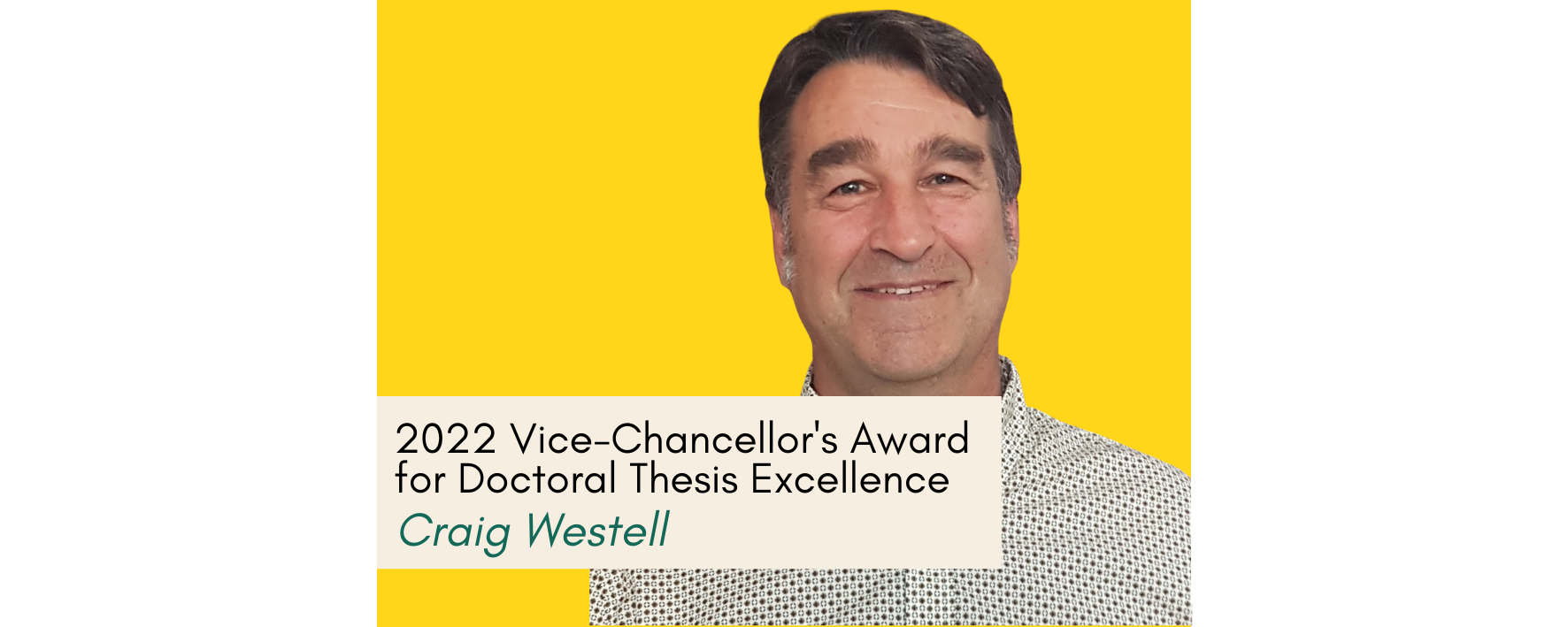
Craig Westell is from the College of Humanities, Arts and Social Sciences and is one of the 12 winners of the Vice-Chancellor’s Award for Doctoral Thesis Excellence for 2022. Craig was supervised by Professor Amy Roberts and Associate Professor Mike Morley.
Craig’s thesis, “Just Add Water: Transformations in a peopled riverscape in the Riverland region of South Australia” aimed to contextualise the deep timeline of Aboriginal lifeways in the Riverland region of South Australia and develop some understanding of how changes in this riverscape had been accommodated over this timeline.
We asked Craig to share what led to undertaking a PhD, what the research is about and advice to fellow students.
What led you to undertake a PhD? What inspired or motivated you?
As a heritage consultant, I had undertaken a number of Aboriginal heritage impact assessments for infrastructure development in the Riverland in collaboration with the River Murray and Mallee Aboriginal Corporation (RMMAC). This included assessments of water infrastructure schemes that aimed to mitigate the effects of the Millennium Drought. That work provided the context and motivation for my thesis. The drought highlighted the dynamic nature of the river – change had been the backdrop to Aboriginal lifeways on the river — and I wanted to better understand the nature of long-term change in this riverscape and how people had accommodated it. I saw the PhD as an opportunity to explore themes that I’d considered in the commercial work but had been unable to explore, to develop a deeper narrative around the history of Aboriginal lifeways in this riverscape.
![]()
Tell us about your research
When you look across River Murray floodplains around Renmark, what you’re essentially looking at is a timeseries in the development of the river; river channels, lakes and lagoons that had developed, been abandoned or modified over millennia. The approach taken in my research was to form an understanding of how and when the floodplains had developed and scrutinise the relationships between Aboriginal archaeology and the palaeolandscapes it occupied. These relationships complemented the traditional dating methods I applied to the archaeology and supported a narrative around the long-term interactions of Aboriginal people with their river.
![]()
What advice would you give to those who are about to undertake a PhD?
In all, I’ve taken great satisfaction from this research and I’m honoured to be a recipient of the VC Award. My advice to anyone starting a PhD would be to engage as much as you can with your colleagues as you’ll find great benefit in running ideas past anyone who might listen. And don’t be afraid of heading down some rabbit holes, you might just find some gems down there.
I completed my thesis at a time when we are being asked to recognise and celebrate First Nations peoples as being central to our nation’s identity through constitutional change. This concept is self-evident to most, though perhaps those of us who have had the privilege of exploring the deep past have a slightly different perspective on it. RMMAC, as with various other Aboriginal communities, have a long history of collaboration with Flinders University, and we should acknowledge the immeasurable value of these collaborations, the generosity in it, and the risks and challenges that Aboriginal communities take on in supporting research. I’d like to express my extreme gratitude to RMMAC for the opportunity they’ve provided me in undertaking this research. I will be voting YES.
![]()

